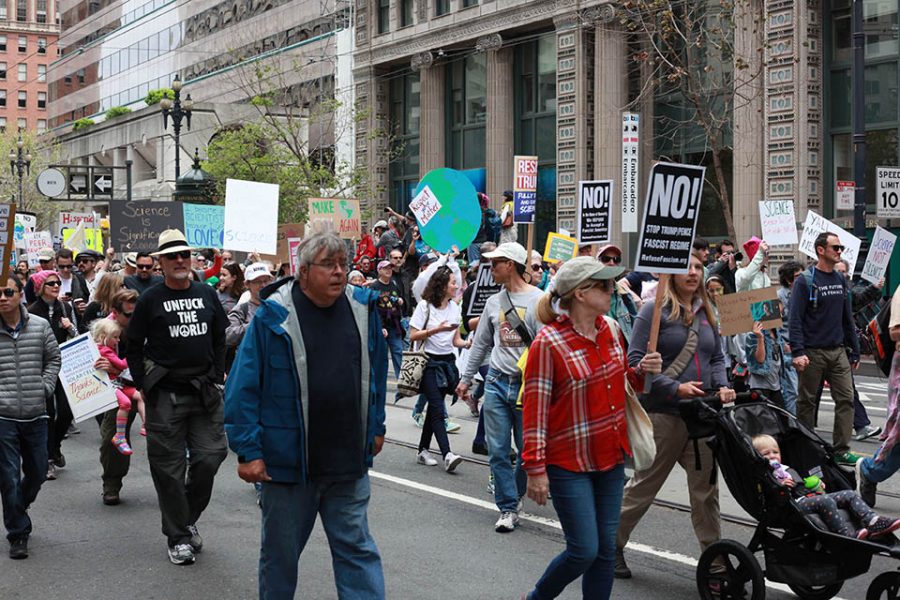Scientists march for the common good
Citizens and scientists nationwide express concern about climate change.
April 25, 2017
The grievances the scientific community expressed over the Trump administration’s intent on defunding and intentionally harming the nation’s agencies responsible for scientific advancement and research seemed numerous as the hundreds of thousands of people who showed up in the more than 600 marches in last Saturday’s March for Science. The march is a symbolic twofold cry rallying citizens to resist the administration’s latest attacks against the scientific community and an urgent call to acknowledge the existence and harmful impact of climate change. If Christians are called to be good stewards of the environment and protect the marginalized and the poor from pollution, then Biola students are morally obligated to ensure that science should benefit everyone in the future.
A symbolic cry
The nation’s financial and political investment in scientific research and technology is the reason why the United States was able to launch the first man to the moon or why researchers such as Jonas Salk were able to successfully end the polio epidemic by creating a non-patented vaccine. Hundreds of thousands of Americans marched on Saturday because they see the Trump administration and the Republican party on the warpath to defund critical and incredibly important research on climate change, disease prevention and energy. According to Vox, the Trump administration could make cuts up to $7 billion in science programs including slashes made to the National Institutes of Health, the Environmental Protection Agency and several other organizations such as the National Aeronautics and Space Administration. Victoria Herrmann, a National Geographic Explorer and the managing director of the Arctic Institute writes in The Guardian how the Trump administration has deleted “datasets, webpages and policies about the Arctic.” Considering the fact the Arctic is warming twice as fast as the global average, this type of deletion is harmful to current and future knowledge about climate change.
All students, regardless of whether one is planning to pursue a career in the sciences, should be concerned about climate change and how it will affect the economy, human migration patterns and national security. The dual purpose of being both a Christian and a student is to reject silence and commit oneself to the pursuit of knowledge for the sake of knowledge and also for the benefits of our neighbors. Science — when conducted in an ethical, purposeful manner — should help everyone and cultivate the common good.
A necessity for investment
When the state uses science for the benefit of the public, citizens are essentially paying for their protection from profit-minded special interest and harmful corporate practices. This country should invest more into organizations such as the EPA, not cutting funds. According to The Intercept, the EPA serves as the last line of defense for small towns such as St. John the Baptist Parish, Louisiana — where for 48 years the local neoprene plant operated by the DuPont corporation polluted the small predominantly African-American town with carcinogenic particles, essentially striking the town’s inhabitants with cancer.
This country needs science that benefits the public and includes the voices and research of scientists from politically and socially marginalized groups — women, people of color and members of the indigenous communities. Poor people of color are often the first victims of pollution, and the phenomena is so prevalent the term “sacrifice zones” have been used by Steve Lerner — who writes in the National Center for Biotechnology Information — to describe the areas “of chemical pollution where residents live immediately adjacent to heavily polluted industries or military bases.”
Climate change is the most important problem currently facing this generation. The survival of our species and the economic security and lives of millions of financially underprivileged individuals throughout the globe is dependent on how the most powerful nation treats the crown jewel of the common good — its agencies and the scientists who run them.







